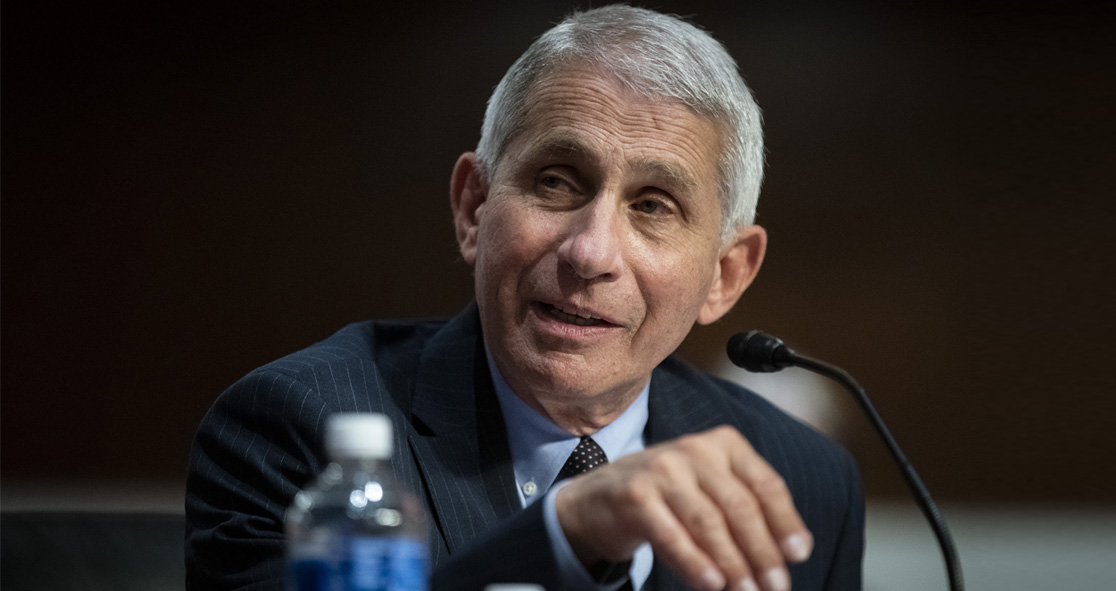In the United States, the number of coronavirus cases continued to grow over the weekend, which has prompted Dr. Anthony Fauci, one of the nation’s top infectious disease experts, to issue warning about the country’s rising level of new infections.
As of Sunday, coronavirus cases were growing by 5% or more in 11 states, according to a CNBC analysis of data collected by Johns Hopkins University. The states include Alaska, Arkansas, Connecticut, Delaware, Maine, Nebraska, New Hampshire, New Jersey, Rhode Island, Wisconsin, and Wyoming.
The new data comes a couple of days after Dr. Fauci, head of the National Institute of Allergy and Infectious Diseases (NIAID), said current data on the U.S. Covid-19 outbreak is “disturbing.” He disagreed with President Donald Trump who said the U.S. outbreak was “rounding the corner.”
Although the number of cases is increasing in 11 states, the overall daily average of new cases is declining. Over the last week, officials reported an average of about 34,300 new cases per day, down to 15% compared to a week ago, according to a CNBC analysis of Hopkins data, which is much lower than 70,000 new cases a day reported weeks ago.
The figure 34,300 a day is still alarmingly high, according to infectious disease experts.
The health officials have expressed concerns over the outbreak getting even worse as the nation is set to enter the fall and winter seasons, warning Americans to be prepared for a potentially dangerous “twindemic” – COVID-19 and flu.
Earlier this month, Dr. Fauci said daily new COVID-19 cases were “unacceptably high” this close to fall.
Many experts have said the U.S. is unlikely to return to “normal” until there is a safe and effective coronavirus vaccine. Currently, there are no FDA-approved vaccines or drugs for the coronavirus, though the agency has issued an emergency use authorization for a few drugs for hospitalized COVID-19 patients.
Recently, Pfizer CEO, Albert Bourla said its COVID-19 vaccine could be distributed to Americans before the end of 2020 if found to be safe and effective. Pfizer’s vaccine candidate, which is co-led by BioNTech, is in its Phase 3 trials, the late-stage study that will assess the safety and efficacy before approval.
Albert Bourla told CBS’ “Face the Nation” that Pfizer “should have key data from its late-stage trial for the Food and Drug Administration by the end of October. If the FDA approves the vaccine, the company is prepared to distribute hundreds of thousands of doses.”
Even though if a vaccine is approved for distribution, the nation is more likely to face shortages. People need to take two doses of the vaccine at varying intervals to achieve the necessary immunity against the virus, and states will likely be facing logistical challenges.
Meanwhile, the World Health Organization (WHO) has recommended people to use face coverings to slow the spread of the virus. Researchers said the virus could spread through respiratory air droplets, meaning the infection could spread through an infected person’s coughs or sneezes.
Several studies have shown that facemasks could serve as one of the barriers to spreading COVID-19 infection. The WHO has also recommended people to wash their hands regularly, practicing social distancing, and avoiding crowded places. The global health organization also advised seeking immediate medical attention in case of a fever, cough, and difficulty breathing.























